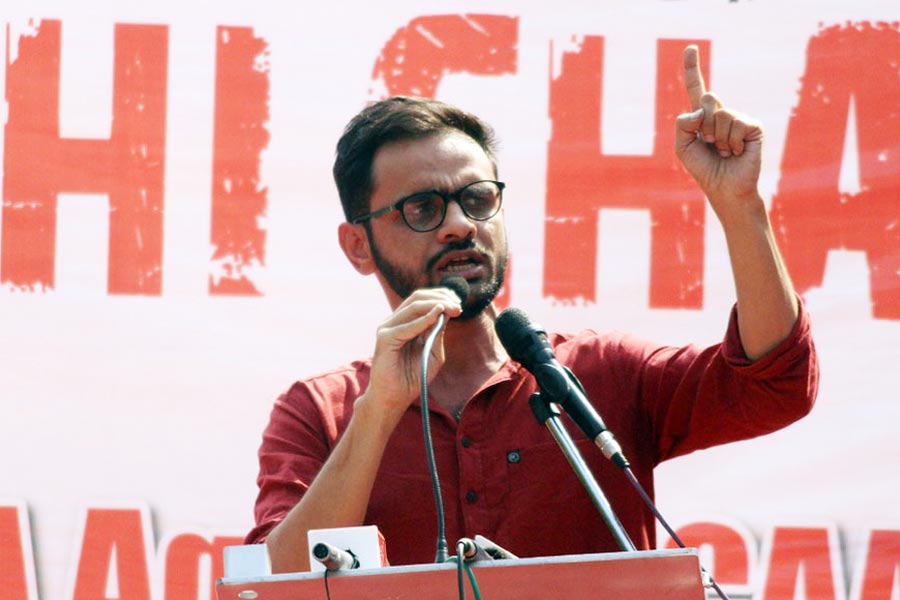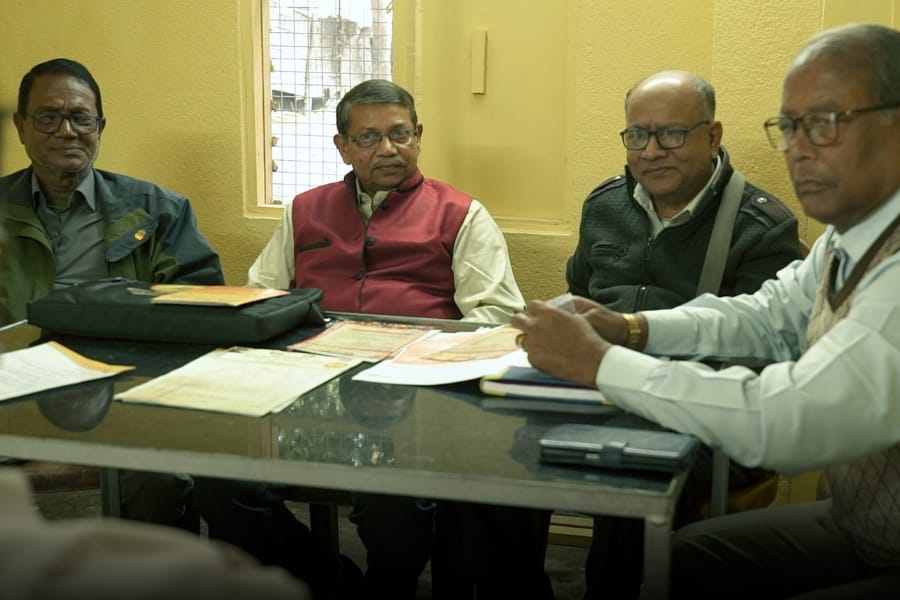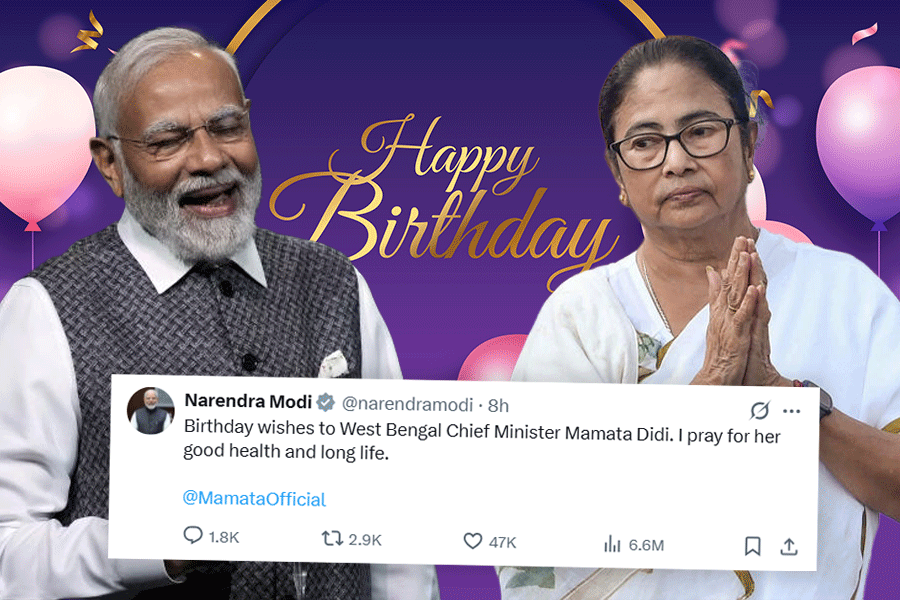|
|
Some historical questions can be answered by energetic research and the passage of time, and others never will be. Among the most trivial is: did Jawaharlal Nehru have sex with Edwina Mountbatten? Unless the British secret service took photographs of the act and preserved them in an archive, we shall almost certainly never know. The grave keeps its secrets and whatever the letters between the two of them may contain — we still await full disclosure — unambiguous references to physical intimacy are very unlikely. They were both brought up as little Victorians. Edwina in her later life certainly broke the constraints of her childhood and could even count a fashionable black entertainer, ‘Hutch’, among her several lovers, but neither she nor Nehru were of a generation that felt comfortable describing what were once known as ‘events in the bedroom’, especially with words on paper addressed to someone of the opposite sex.
In this regard, our enduring ignorance will do us no harm. What we do know from the little evidence made available is rather more important than whether or not sex occurred: the facts are that the two were besotted with each other, exchanged daily letters between England and India, and made elaborate efforts to meet each other in an era when transcontinental travel was much slower and more complicated than it’s since become. ‘In love’ has become the conventional verdict on Edwina and Nehru, and nobody can blame the makers of the film, Indian Summer, about the events of 1947, for wanting to demonstrate the point by including a kiss or two. That India’s information and broadcasting ministry should object to the kissing is, I suppose, also predictable; though its insistence that the film be billed as ‘fiction’ suggests that the government of India still thinks that, in films and books, fact and fiction can easily be separated or told apart. We might wish it were so, but in a whole range of artistic endeavour — from literary biographies to biopics — reconstruction of past events means that the ‘recorded facts’ are omitted or distorted, or supplemented by making stuff up. The tradition is long and sometimes respectable. Macbeth was a real Scottish king and Scotland is a real place; but we can assume that Shakespeare invented the bit where Lady Macbeth prowls around the castle at night trying to scrub imaginary blood from her hands.
It now looks as though the film will never be made: its American backers wanted lots of love in it and the Indian government said no to filming in India if luv-shuv was included. Despite the entertaining prospect of Hugh Grant as the cuckold Mountbatten and Cate Blanchett as his adulterous wife, I don’t think we’ll be missing much. The script is based on a book, also called Indian Summer, which I reviewed when it was first published in 2007. The author, a young British television researcher turned historian, Alex von Tunzelmann, does a very good job of distilling complex political history into a narrative shaped around its leading personalities, but despite its attention-seeking subtitle, The Secret History of the End of an Empire, the book discovered nothing important and new. Earlier books are its main sources, particularly Janet Morgan’s biography of Edwina, which in 1991 brought Nehru’s close relationship with the last viceroy’s wife out of the gossip closet it had hidden in for more than forty years. Morgan had seen some of the Nehru-Edwina correspondence, but (once bitten, twice shy, perhaps) this privilege had not been extended to Tunzelmann, who in her introduction mourned the fact that “despite repeated approaches to the Mountbatten and Nehru-Gandhi families” she had not been given access to their private archives. “Only a handful of carefully selected historians has ever been allowed to look at any part of this correspondence,” Tunzelmann wrote, “a pity in view of the light it would undoubtedly shed on some of the twentieth century’s most fascinating personalities and politics.”
I’m sure it would. But I think we make a mistake in assuming that the reason for the Gandhi and Mountbatten families’ secrecy is any embarrassment about anything sexual in the letters — in the unlikely event, that is, that sex is even remotely mentioned. The information and broadcasting ministry’s reaction to the script of Indian Summer, asking that the kissing be cut and the word ‘love’ struck from the dialogue, isn’t necessarily symptomatic of the real Nehru anxiety; it may set us off on a false trail.
Until — unless — the correspondence is published, that concern can never fully be known, but it would be fair to guess that Nehru’s confessions to Edwina about his personal and political problems are the real reason for the secrecy. So frequent a correspondence over so many years can’t have been confined to endless reworkings of the theme, ‘I love you and miss you.’ Edwina was the Indian prime minister’s greatest confidante during the most important decade of his life, when India was struggling to undo the strings that tied it to its old imperial master and find a new place in the world. Anyone taking a narrow nationalist view of his letters would probably conclude he told her many things that he would have been wiser to keep to himself. What information and opinions was Nehru disclosing to such a prominent member of the old imperial power? That’s the historical question that needs to be answered. We still wait to hear.
************
I was talking about all this with an old friend from Delhi when he mentioned the fact that Nehru had sent an Indian frigate to escort the British destroyer that was carrying Edwina’s body for burial at sea off Portsmouth. A sea burial was her request. The crew of HMS Wakeful lowered the weighted sack into the waves, and the INS Trishul cast a wreath of marigolds. Looking again at Tunzelmann’s book, I came across a sentence that said that Nehru had sent the Trishul “all the way” to the English Channel for this romantic funeral.
All the way from Bombay is the implication, demonstrating both the epic dimension of Nehru’s grief and a wasteful if not unconstitutional use of the Indian navy. But hang on a minute. Edwina died suddenly in Borneo on February 21, 1960. Her body was flown home from Singapore and immersed in the Channel on February 25, 1960. A sea voyage from Bombay, even by a warship driven at top speed, would have taken at least two weeks. I did a little research and found that the Trishul had been commissioned at its Belfast shipbuilders only the month before and was probably in Portsmouth when Edwina died, to take on crew and supplies before it sailed east. So “all the way” in the Trishul’s case means nothing more than a dozen miles from its loading berth.
I point this out not to show off my boyhood enthusiasm for ships and the maritime books that still surround me, but to warn against trusting popular history — even before it’s been mangled by scriptwriters and film directors or revised by the ministry of information and broadcasting.
*************
The conversation about Nehru, Edwina and the frigate took place — appropriately some might say — in the drawing room of the Oriental Club, which is a handsome Palladian building just off Oxford Street. It was founded in 1824 by a few nabobs in the East India Company — best not to examine how they made their money — and installed the Duke of Wellington as its first honorary president. It has a lovely old library. Portraits of Warren Hastings, Lord Curzon, and others stare down on the drawing room. The poached haddock at breakfast is delicious. And yet I rather dislike the place. I don’t at all mind that it reeks of imperial history, but I loathe its absurd rules. Gentlemen must wear ties. Women are forbidden in the bar but allowed in the drawing room. Women (and men) in the drawing room must not wear jeans.
A woman who was with us asked the waitress if we might have some peanuts with our drinks.
“I’m afraid snacks can only be served in the bar.”
“But we can’t go to the bar because I’m a woman.”
“I’m sorry, madam.”
All across the West End of London there are clubs like this — ‘gentlemen’s clubs’, with waiting lists for new members and fees of around £1,000 a year, where a tie is still seen as a symbol of male respectability and women are another species entirely. It can’t last. It shouldn’t last. Calcutta has many clubs founded on the London model and in all of them women can now roam almost everywhere. In most of them, even in the Bengal Club, men need not wear jackets and ties. London clubs, meanwhile, stick to traditions that are ethically and socially unsupportable, and financially ruinous. To sit in the Oriental Club’s empty drawing room, just above its equally quiet bar, is to see an older civilization hanging on foolishly by its fingertips.











